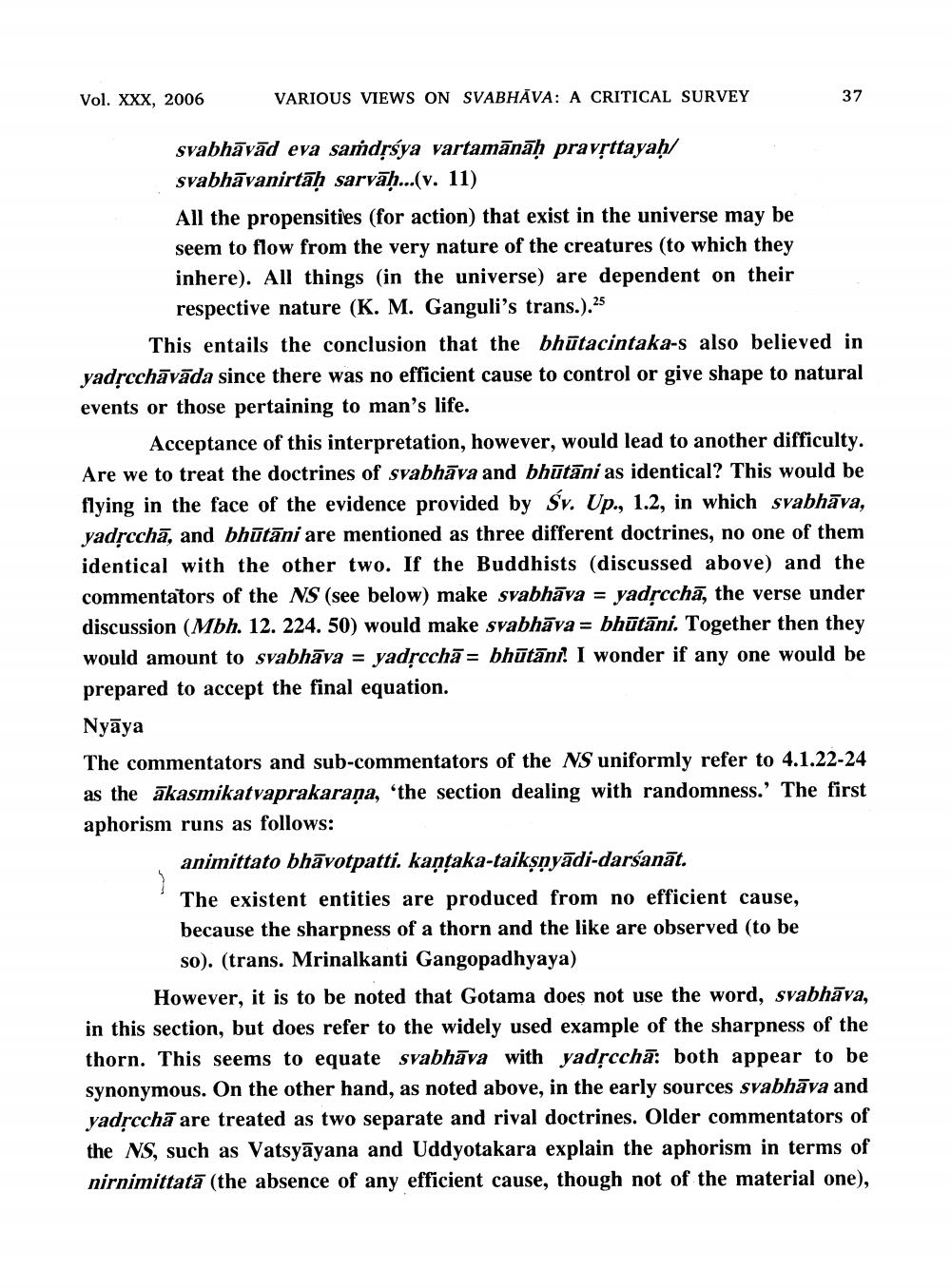________________
Vol. XXX, 2006
VARIOUS VIEWS ON SVABHAVA: A CRITICAL SURVEY
svabhāvād eva samdṛśya vartamānāḥ pravṛttayaḥ/ svabhavanirtāḥ sarvāḥ...(v. 11)
All the propensities (for action) that exist in the universe may be seem to flow from the very nature of the creatures (to which they inhere). All things (in the universe) are dependent on their respective nature (K. M. Ganguli's trans.).25
37
This entails the conclusion that the bhutacintaka-s also believed in yadṛechavada since there was no efficient cause to control or give shape to natural events or those pertaining to man's life.
Acceptance of this interpretation, however, would lead to another difficulty. Are we to treat the doctrines of svabhava and bhätäni as identical? This would be flying in the face of the evidence provided by Sv. Up., 1.2, in which svabhāva, yadrecha, and bhütäni are mentioned as three different doctrines, no one of them identical with the other two. If the Buddhists (discussed above) and the commentators of the NS (see below) make svabhava = yadṛccha, the verse under discussion (Mbh. 12. 224. 50) would make svabhava bhütäni. Together then they would amount to svabhava yadṛccha bhūtāni. I wonder if any one would be prepared to accept the final equation.
Nyaya
The commentators and sub-commentators of the NS uniformly refer to 4.1.22-24 as the akasmikatvaprakarana, 'the section dealing with randomness.' The first aphorism runs as follows:
animittato bhāvotpatti. kantaka-taikṣṇyādi-darśanāt.
The existent entities are produced from no efficient cause, because the sharpness of a thorn and the like are observed (to be so). (trans. Mrinalkanti Gangopadhyaya)
However, it is to be noted that Gotama does not use the word, svabhāva, in this section, but does refer to the widely used example of the sharpness of the thorn. This seems to equate svabhava with yadṛccha: both appear to be synonymous. On the other hand, as noted above, in the early sources svabhava and yadrecha are treated as two separate and rival doctrines. Older commentators of the NS, such as Vatsyayana and Uddyotakara explain the aphorism in terms of nirnimittata (the absence of any efficient cause, though not of the material one),




